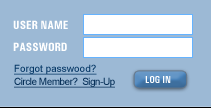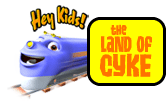 |
 |
 |
ADHD - Symptoms
The principal characteristics of ADHD are inattention, hyperactivity, and impulsivity. These symptoms appear early in a child's life. Because many normal children may have these symptoms, but at a low level, or the symptoms may be caused by another disorder, it is important that the child receive a thorough examination and appropriate diagnosis by a well-qualified professional.
Symptoms of ADHD will appear over the course of many months, often with the symptoms of impulsiveness and hyperactivity preceding those of inattention, which may not emerge for a year or more. Different symptoms may appear in different settings, depending on the demands the situation may pose for the child's self-control. A child who "can't sit still" or is otherwise disruptive will be noticeable in school, but the inattentive daydreamer may be overlooked. The impulsive child who acts before thinking may be considered just a "discipline problem," while the child who is passive or sluggish may be viewed as merely unmotivated. Yet both may have different types of ADHD. All children are sometimes restless, sometimes act without thinking, sometimes daydream the time away. When the child's hyperactivity, distractibility, poor concentration, or impulsivity begin to affect performance in school, social relationships with other children, or behavior at home, ADHD may be suspected. But because the symptoms vary so much across settings, ADHD is not easy to diagnose. This is especially true when inattentiveness is the primary symptom.
According to the most recent version of the Diagnostic and Statistical Manual of Mental Disorders2 (DSM-IV-TR), there are three patterns of behavior that indicate ADHD. People with ADHD may show several signs of being consistently inattentive. They may have a pattern of being hyperactive and impulsive far more than others of their age. Or they may show all three types of behavior. This means that there are three subtypes of ADHD recognized by professionals. These are the predominantly hyperactive-impulsive type (that does not show significant inattention); the predominantly inattentive type (that does not show significant hyperactive-impulsive behavior) sometimes called ADD—an outdated term for this entire disorder; and the combined type (that displays both inattentive and hyperactive-impulsive symptoms).
Hyperactivity-Impulsivity
Hyperactive children always seem to be "on the go" or constantly in motion. They dash around touching or playing with whatever is in sight, or talk incessantly. Sitting still at dinner or during a school lesson or story can be a difficult task. They squirm and fidget in their seats or roam around the room. Or they may wiggle their feet, touch everything, or noisily tap their pencil. Hyperactive teenagers or adults may feel internally restless. They often report needing to stay busy and may try to do several things at once.
Impulsive children seem unable to curb their immediate reactions or think before they act. They will often blurt out inappropriate comments, display their emotions without restraint, and act without regard for the later consequences of their conduct. Their impulsivity may make it hard for them to wait for things they want or to take their turn in games. They may grab a toy from another child or hit when they're upset. Even as teenagers or adults, they may impulsively choose to do things that have an immediate but small payoff rather than engage in activities that may take more effort yet provide much greater but delayed rewards.
Some signs of hyperactivity-impulsivity are:
- Feeling restless, often fidgeting with hands or feet, or squirming while seated
- Running, climbing, or leaving a seat in situations where sitting or quiet behavior is expected
- Blurting out answers before hearing the whole question
- Having difficulty waiting in line or taking turns.
Inattention
Children who are inattentive have a hard time keeping their minds on any one thing and may get bored with a task after only a few minutes. If they are doing something they really enjoy, they have no trouble paying attention. But focusing deliberate, conscious attention to organizing and completing a task or learning something new is difficult.
Homework is particularly hard for these children. They will forget to write down an assignment, or leave it at school. They will forget to bring a book home, or bring the wrong one. The homework, if finally finished, is full of errors and erasures. Homework is often accompanied by frustration for both parent and child.
The DSM-IV-TR gives these signs of inattention:
- Often becoming easily distracted by irrelevant sights and sounds
- Often failing to pay attention to details and making careless mistakes
- Rarely following instructions carefully and completely losing or forgetting things like toys, or pencils, books, and tools needed for a task
- Often skipping from one uncompleted activity to another.
Children diagnosed with the Predominantly Inattentive Type of ADHD are seldom impulsive or hyperactive, yet they have significant problems paying attention. They appear to be daydreaming, "spacey," easily confused, slow moving, and lethargic. They may have difficulty processing information as quickly and accurately as other children. When the teacher gives oral or even written instructions, this child has a hard time understanding what he or she is supposed to do and makes frequent mistakes. Yet the child may sit quietly, unobtrusively, and even appear to be working but not fully attending to or understanding the task and the instructions.
These children don't show significant problems with impulsivity and overactivity in the classroom, on the school ground, or at home. They may get along better with other children than the more impulsive and hyperactive types of ADHD, and they may not have the same sorts of social problems so common with the combined type of ADHD. So often their problems with inattention are overlooked. But they need help just as much as children with other types of ADHD, who cause more obvious problems in the classroom.
(NIMH)
ADHD Topics:
What Is It, Symptoms, Diagnosis, Who Diagnoses it, Causes, Related Conditions, Treatment, Therapy, Medication, School, Teenagers, and Adults.


